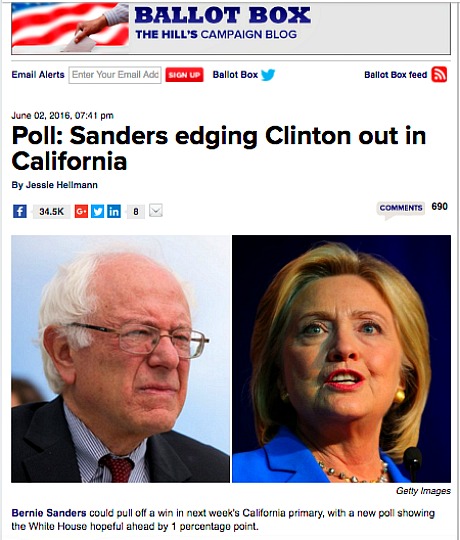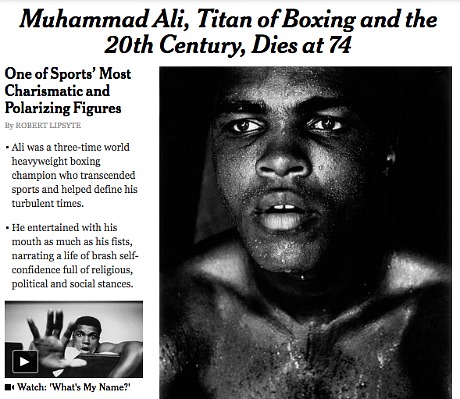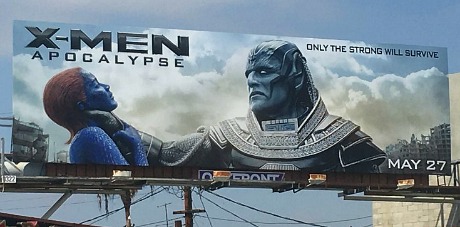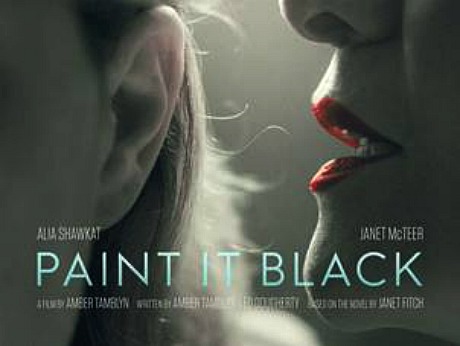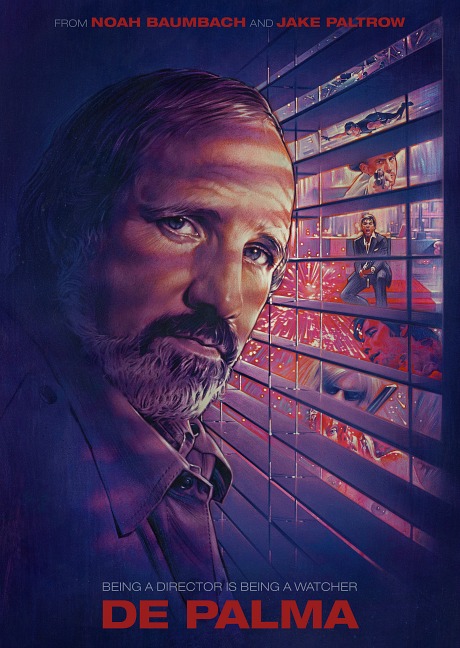Story #1: I wasn’t there but a friend ran into Muhammad Ali at a New Jersey Turnpike gas-and-food stop in the winter of ’68. This of course was during Ali’s exile years (i.e., after the boxing commissars had taken away his heavyweight championship title after he’d refused to serve in the military due to religious objections over fighting in the Vietnam War). He was travelling in a large tour bus, and a fair amount of ice and sludge had apparently accumulated on the sides, and Ali had borrowed a water hose from the gas-station guy and was hosing it down and scraping the ice off with one of those long-handled scrapers. It was freezing and windy, but my friend had to shake his hand — “Hey, champ!” Ali stopped hosing, smiled, offered his hand and a kind word. Nothing special but “a moment.”
Story #2: In the fall of ’96 I was moderating a Woodland Hills AMC film class called “Hot-Shot Movies”, and one of my picks was Leon Gast‘s When We Were Kings, the brilliant doc about the 1974 Ali vs Forman “Rumble in the Jungle” championship bout which won the Oscar the following year for Best Feature-Length Documentary. I was introducing the film when a middle-aged, red-haired woman raised her hand and said, “Why have you chosen this film? Why do we have to sit here and watch it?” Translation: “I bought a ticket to your film series for doses of classy escapism, but not to see a film about that black Muslim blowhard who disgraced himself by refusing to fight in Vietnam.” I chose it, I said, because the film is full of spirit and love and celebration, and because it ends in glorious triumph. And because it may be the best sports-related doc I’ve ever seen.

